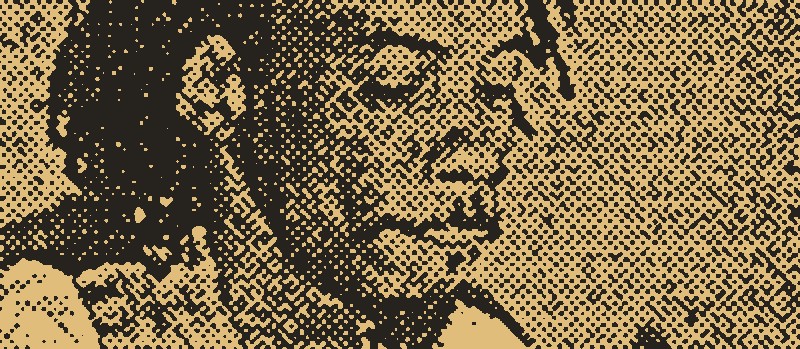Roi Kwabena and Zero Anthropology
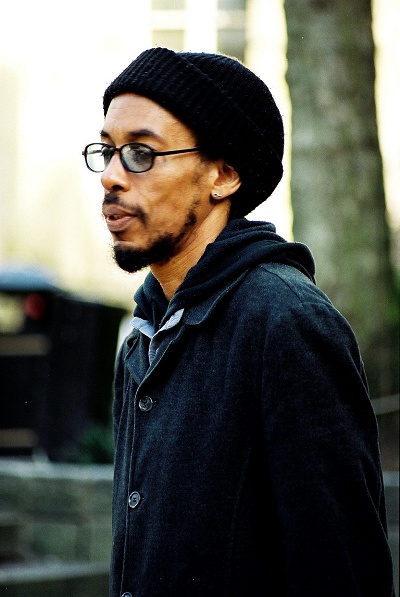 Writing this just a couple of months past the 11th
anniversary of Roi Kwabena’s passing from this
world in 2008, it is now difficult for me to
remember how Roi and I first began to
correspond. What I do recall is that he was
fascinated with the history of
Indigenous Peoples in his native
Trinidad & Tobago—his own mother had Amerindian
ancestry. Since I had established several
websites featuring my ethnographic and
ethnohistoric work about the Caribs of Trinidad,
plus larger current events sites that covered
contemporary developments concerning all of
today’s Indigenous communities in the wider
Caribbean (I first began “blogging” in 2003 with
The CAC Review, and had an
online newsletter before that from
2000), it turned out that one of my most avid
readers was Roi. Correspondence began from that
point.
Writing this just a couple of months past the 11th
anniversary of Roi Kwabena’s passing from this
world in 2008, it is now difficult for me to
remember how Roi and I first began to
correspond. What I do recall is that he was
fascinated with the history of
Indigenous Peoples in his native
Trinidad & Tobago—his own mother had Amerindian
ancestry. Since I had established several
websites featuring my ethnographic and
ethnohistoric work about the Caribs of Trinidad,
plus larger current events sites that covered
contemporary developments concerning all of
today’s Indigenous communities in the wider
Caribbean (I first began “blogging” in 2003 with
The CAC Review, and had an
online newsletter before that from
2000), it turned out that one of my most avid
readers was Roi. Correspondence began from that
point.
To put it bluntly, what is now called Zero
Anthropology is but a pale imitation of Roi
Kwabena’s many and diverse activities and
engagements—it does not even merit to be called
an imitation. Roi, however, inspired its future
development. Zero Anthropology was just starting
to be launched, as “Open Anthropology” back
then, and then soon after Roi passed on before
the project could really begin to take shape.
When we corresponded, we sent each other our
articles for publication in our respective
venues, made plans for new collaborations, and
he discussed my research on Indigenous Peoples
of the Caribbean at length. I had only just
started to write on non-Caribbean topics in his
final months. He never got a chance to see what
would become of ZA. Yet the suddenness of his
passing, and the void that it left, caused me to
redouble my efforts as if infused by his spirit,
remembering the best of his mentoring, wishing
to project his voice forward even more. Online,
he still lives, in numerous websites that he
created (see below).
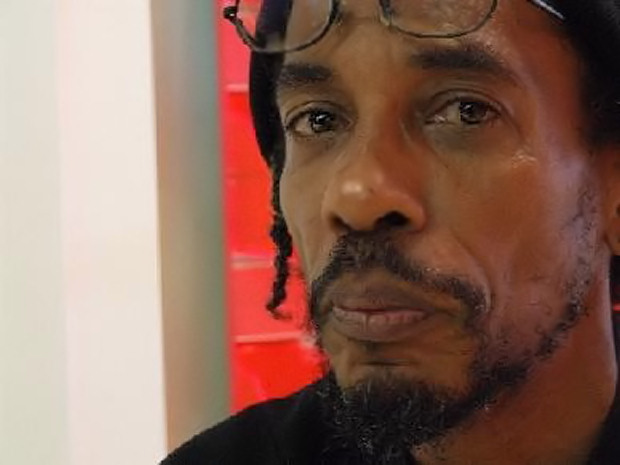 Roi mattered in many ways in terms of the shape
ZA would take, but I also worry about
inadvertently and wrongly appropriating his
legacy. He was a
cultural anthropologist, but not an
academic. His work was done entirely outside of
the walls of academia, a form of cultural
activism that inspired others who—even without a
degree in anthropology—began to call themselves
anthropologists nonetheless. He introduced me to
anthropologies beyond the institution and the
profession, and ways of communicating—not ways
of “communicating anthropology” as such, in the
manner of so much opportunistic disciplinary
promotionalism, but rather ways of communicating
and interacting that are at the essence of the
most basic of anthropologies: being out there,
immersed, exchanging, learning, conversing,
fighting, singing. He was an artist, a musician,
a poet, a teacher, an essayist, a researcher, a
publisher, and for a while a politician as well.
Zero Anthropology barely covers a third of that
list of activities—and there are no public,
offline, in-person, performative components to
Zero Anthropology, unless we count the few radio
and television appearances that have happened
over the years. There is also very little
artistry in Zero Anthropology, apart from rare
fictional stories, comedic videos, and even
rarer poetry. Least of all does Zero
Anthropology create its own music, teach
children, and mingle with people in church halls
and community centres.
Roi mattered in many ways in terms of the shape
ZA would take, but I also worry about
inadvertently and wrongly appropriating his
legacy. He was a
cultural anthropologist, but not an
academic. His work was done entirely outside of
the walls of academia, a form of cultural
activism that inspired others who—even without a
degree in anthropology—began to call themselves
anthropologists nonetheless. He introduced me to
anthropologies beyond the institution and the
profession, and ways of communicating—not ways
of “communicating anthropology” as such, in the
manner of so much opportunistic disciplinary
promotionalism, but rather ways of communicating
and interacting that are at the essence of the
most basic of anthropologies: being out there,
immersed, exchanging, learning, conversing,
fighting, singing. He was an artist, a musician,
a poet, a teacher, an essayist, a researcher, a
publisher, and for a while a politician as well.
Zero Anthropology barely covers a third of that
list of activities—and there are no public,
offline, in-person, performative components to
Zero Anthropology, unless we count the few radio
and television appearances that have happened
over the years. There is also very little
artistry in Zero Anthropology, apart from rare
fictional stories, comedic videos, and even
rarer poetry. Least of all does Zero
Anthropology create its own music, teach
children, and mingle with people in church halls
and community centres.
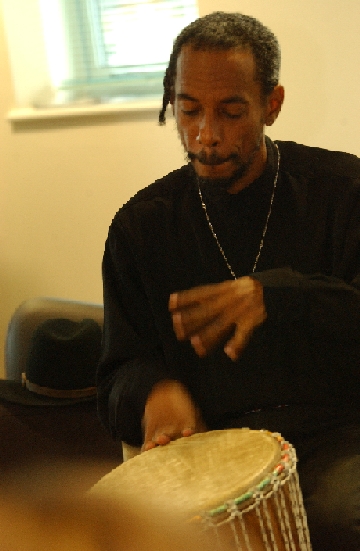 What distinguishes Roi Kwabena as the first, and
best, Zero Anthropologist was his combination of
art and analysis, culture and politics,
publication and public engagement, in the
service of a committed critique of imperialism
and neo-colonialism. A man from “the periphery,”
he operated across the periphery and the centre.
What distinguishes Roi Kwabena as the first, and
best, Zero Anthropologist was his combination of
art and analysis, culture and politics,
publication and public engagement, in the
service of a committed critique of imperialism
and neo-colonialism. A man from “the periphery,”
he operated across the periphery and the centre.
Roi stands for me as a vision of what a future
anthropology could and should look like, I am
making that very clear, even if my own praxis
cannot mimic his. I told Roi how much of an
inspiration he was for me, and modest and
generous as he was he claimed that I was his
inspiration. I still remember how he signed his
emails, each time with a different statement of
his being bearing the imprints of his native
Trinidad (as curated by our mutual friend,
Guanaguanare, pasted in below from his emails):
swim deep as manatee
levitate
as a kolibri
chanting like a macaw
SINGING as COKI
blowing like sandfly
fly high like a condor from los iros to
guayaguayare
wade as an anaconda
dig deeper than anteater
glimmer like the green horsewhip…
In
honour of Roi’s work and as a result of his
inspiration, you can find on this site four
videos made to visually animate four of his
spoken word poems—Sour
Chutney,
West India,
Deep Obeah,
and Cascadura.
Please watch them, and soak in the sights and
sounds. (On Roi’s poetic works, see “An
Interview with Roi Kwabena” by Eric
Doumerc, University of Toulouse-Le Mirail,
France, for “Literature of the Caribbean” on
Post-Colonial Web).
About Roi Kwabena
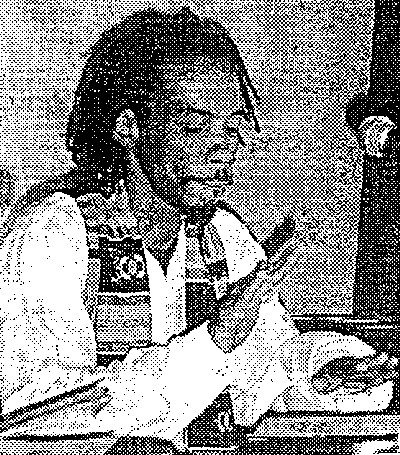 The
late
Dr. Roi Guanapo Ankhkara Kwabena
(born Fitzroy Cook Jr. on July 23, 1956, in
colonial Trinidad), was a former Senator for the
United National Congress (UNC) in Trinidad and
Tobago, and a resident in the UK. Roi Kwabena
died on January 9, 2008. Roi was a classic
Caribbean renaissance man: poet, musician,
philosopher, historian,
publisher, a committed public
intellectual with a strong, poetic critique of
imperialism, social injustice and inequality,
and the forced impoverishment of the so-called
former colonies of the world system.
The
late
Dr. Roi Guanapo Ankhkara Kwabena
(born Fitzroy Cook Jr. on July 23, 1956, in
colonial Trinidad), was a former Senator for the
United National Congress (UNC) in Trinidad and
Tobago, and a resident in the UK. Roi Kwabena
died on January 9, 2008. Roi was a classic
Caribbean renaissance man: poet, musician,
philosopher, historian,
publisher, a committed public
intellectual with a strong, poetic critique of
imperialism, social injustice and inequality,
and the forced impoverishment of the so-called
former colonies of the world system. 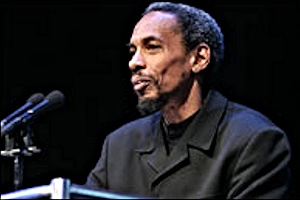 His
philosophy of “cultural literacy” emphasized
respect for cultural difference. He was trained
as an anthropologist.
His
philosophy of “cultural literacy” emphasized
respect for cultural difference. He was trained
as an anthropologist.
Roi
was conversant with many poets, writers, and
public figures across the Caribbean and even in
the African diaspora in the US and UK, having
collaborated with many of them; he was also
personally advised by C.L.R. James.
Going back further,
Roi established
Afroets Press in 1973, when
he was just 17 years old, publishing the works
of numerous writers from the Caribbean and
African diaspora.
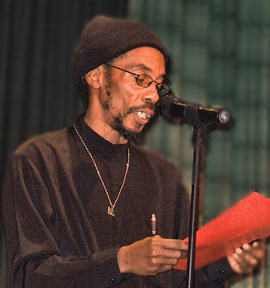 In the 1970s in Trinidad, he
published some of his earliest poetry in the
influential paper, Tapia (see a
sample here, reproduced below). In
1974 he published his book, Lament of the
Soul. In 1977, he founded
Bembe Theatre Productions. A
diary of his activities follows below. In the
UK, in 2001–2002 he was the
Poet Laureate for Birmingham,
England (see the
BBC feature of Roi and
his poem about Birmingham,
commissioned by the city). In 2007, the
International Slavery Museum in Liverpool
named Roi
one of history’s greatest Black Achievers—see
the stories in
The Independent (UK) and
The Trinidad Guardian. The
National Development and Research Centre for
adult literacy and numeracy commissioned his
poem, “Re:
vision” (also see
his interview with the NDRC on
writing “Re:
vision–Words, power and sound”). He
regularly published robust volumes of his
journal,
Dialogue.
In the 1970s in Trinidad, he
published some of his earliest poetry in the
influential paper, Tapia (see a
sample here, reproduced below). In
1974 he published his book, Lament of the
Soul. In 1977, he founded
Bembe Theatre Productions. A
diary of his activities follows below. In the
UK, in 2001–2002 he was the
Poet Laureate for Birmingham,
England (see the
BBC feature of Roi and
his poem about Birmingham,
commissioned by the city). In 2007, the
International Slavery Museum in Liverpool
named Roi
one of history’s greatest Black Achievers—see
the stories in
The Independent (UK) and
The Trinidad Guardian. The
National Development and Research Centre for
adult literacy and numeracy commissioned his
poem, “Re:
vision” (also see
his interview with the NDRC on
writing “Re:
vision–Words, power and sound”). He
regularly published robust volumes of his
journal,
Dialogue.
Roi was also a determined publisher on the
Internet, with multiple sites still existing,
and a prolific publisher whose many works are
available as print-on-demand. A list of his
sites can be found below. An avid blogger, Roi
maintained numerous individual sites, listed
here. In addition, his
MySpace page affords us a glimpse of
the many persons that
he deeply touched.
After his passing, a group of friends gathered
in a drum circle in Birmingham produced a
tribute to Roi, part of which is seen
in this video.
More commemorations follow at the bottom of this
page.
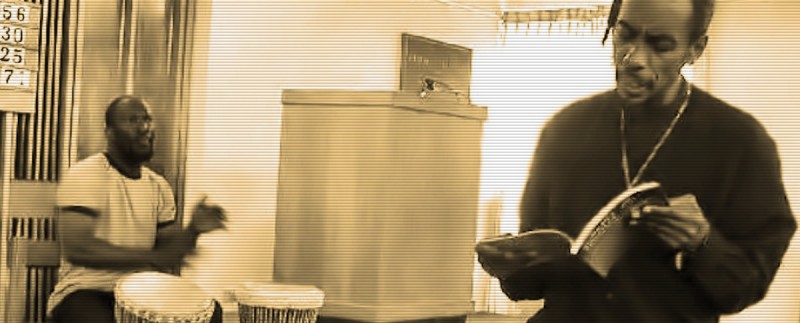
Websites by Roi Kwabena Currently Online
A History of Roi Kwabena’s Writing, Publishing,
and Stage Productions
(AP, below, refers to Afroets Press; RAKA
is the name of another of Roi Kwabena’s
imprints.)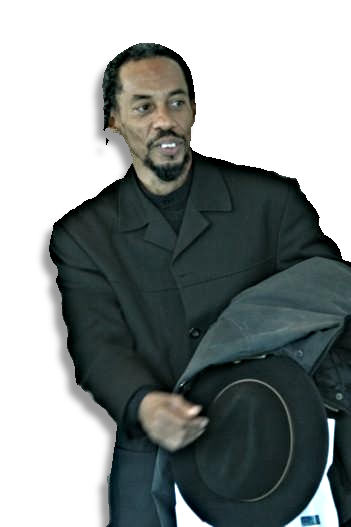
1973—Publication of the anthology: “Four
Hundred Years of Pain and Suffering” by Leroy
Calliste and Selwyn Newton.
1974—Launch of Lament of the Soul;
first book review by Anson Gonzalez in the
Trinidad Guardian: “Young Poet steps boldly
into print”. First poetry reading session:
featuring Leroy Calliste, Fitzroy Cook Jnr.,
Peter Smart and Michael Als at Oilfields Workers
Trade Union’s Port of Spain Office. Several
other readings staged at a commercial bank and
church parish halls and community centres across
the country.
1975—Publication of “Insight”; AP members
actively advocate adoption of International
Copyright conventions by Government. Memorable
stage production of “Black Fire” in sister isle
Tobago. Leroy Calliste concludes a performance
tour in the US.
1976—Tragic death of poet-teacher Leroy
Calliste; afforded ISBN by a Caribbean agency;
also Owusa Babatunde appointed Afroets Press
Editor Publisher. Numerous readings across
Trinidad & Tobago.
1977—Afroets Press presents lecture by
poet/artist Leroy Clarke. Media fuels
controversy over “AP Poets” with their unusual
style. Roi Kwabena delivers lecture on local
literature to local Teachers Training College;
founding of Bembe Productions; famous AP lecture
by Dr. Victor Questel: “Nobody is coming to
theatre, because it has nothing to say”.
1978—FUNDISHA cultural exposition in
Diego Martin commands national media attention;
“Redemptive Season” a literary event with music
successfully promoted outside capital.
1979—Two young poets, Peggy Heather Hull
and Helen William, launch a season of new female
writers. Veteran lyricist Iacoob Ibn Abbass and
community worker Omataa Ojungi join Bembe.
1980—“In Other Words” enjoys successful
run at The Theatre in Belmont, Port of Spain.
Several performances staged in discotheques
around the capital. These events blended popular
youth culture with local performance poetry
supported with percussion. At this time the art
form Rapso, pioneered by fellow writer Bro
Resistance of the Network Riddum Band, also
gained more popularity.
1981—Publication of Seko Tafari’s, “In
Memory”; Christian Action for Development in the
Caribbean supported activities with a grant.
Lecture on Women, Labour and struggle in the
Caribbean by Dr. Rhoda Reddock; Cacique
Publications, a local publishing company, seeks
partnership and appoints Roi Kwabena an
associate editor. Works published during this
period include: Is Slavery Again,
Labour History and Bandit Garden, Pickers
and Flowers: An anthology of Poetry by Michael
Als. AP gains Membership in the Writers
Union of Trinidad & Tobago.
1982—Several exhibitions and readings
across the country featured many writers and
artists. Three dinner performances featuring
vocalist-poet Amalla Sayida, Sapodilla, Roi
Kwabena and Ateba Keneyatta were successfully
staged.
1983—Publication of C.U.R.E. (Community
Upliftment & Rehabilitation Exercises), a
journal promoting good health.
1984—Publication of C.U.R.E.,
presentation of Manifestations art exhibition;
tragic passing of poet/artist Jamakie TUT Oyoyo
and Dr. Victor Questel; Anthony Weeks appointed
AP Editor-Publisher.
1985—AP founder Roi Kwabena embarks on a
Performance/Lecture Tour: Belgium, UK, France,
Netherlands, West Germany and Bulgaria. Links
forged with international publishers writers and
artists.
1986—Publication of poetry and other
works in joint co-operation with UK.
(Coventry-based) Tamara Productions was founded.
Challenge, a newspaper serving the
Afro-Caribbean communities in the West Midlands
founded.
1987—During a extended sojourn in East
Africa, Kwabena was accorded the distinguished
title of Al Ansaari in Sudan. AWARE Publications
Imprint launched in Trinidad & Tobago.
1988—Khadija Saliyma was appointed AP
Editor publisher.
1989— Lectures and workshops for schools
and libraries across Trinidad & Tobago by
Christopher Grey and Roi Kwabena. Exhibition on
antiquity of Kush presented in joint
co-operation of the Institute for Cultural
Co-Operation of the Venezuelan Embassy in
Trinidad. This multi-media display also tours
other venues across the country with support of
the Division of Culture of the Government of
Trinidad & Tobago.
1990—Caribbean tour by Roi Kwabena,
several titles published by AWARE. Plus
recognition of Kwabena by the Trinidad Public
Library in recognition of the UN Declaration of
International Year of Literacy.
1991—North American and Japanese tour by
Christopher Grey, who also receives several
national and international awards for his
community work.
1992—Roi Kwabena appointed Senator of the
Republic of Trinidad & Tobago. He also supports
Rapso Week and the Trinidad & Tobago
Government’s hosting of CARIFESTA. Youth
Voice journal also invites him to address
their third anniversary celebrations. He
addressed the formal opening of the NIA Arts
Centre in Manchester, UK.
1993—AWARE publishes two more titles
edited by Christopher Grey .
1994—Valerie Griffith appointed AP Editor
Publisher; AP also presents Ghanaian historian,
Dr. Kwaku Sennah’s lecture on the African
Diaspora. African History Month celebrations
staged at the University of the West Indies (St.
Augustine Campus, Trinidad) and other venues.
1995—Profile, a cultural journal
published by AP was launched and an awards
ceremony was held. Roi Kwabena embarks on
another tour of Europe. Third edition of
About the Caribbean published in Germany,
plus the anthology, Manifestations,
through joint co-operation of AP and the
University of Augsburg–Bavaria.
1996—AP publishes Kush Reclaimed
and the fourth edition of About the Caribbean,
plus Nubian Saints of Christianity was
published by RAKA; further editions of above
mentioned plus other titles released. Two
Exhibitions, “Gathering Power I & II” featuring
Midland-based artists presented in Birmingham,
UK.
1997—About the Caribbean, 5th
Revised Edition published, also A Job for the
Hangman—a controversial collection of poems
by Kwabena. An official online presence on the
worldwide web was established.
1998—Two titles of poetry by UK-based
poets published by RAKA Publications: Poetic
Revelations by Sakinah Reynolds and
Nelson Mandela’s Dream as a Boy by Leon
Blades. The multimedia exhibition “Glory of Kush”
is open to view for 24 weeks in London, jointly
hosted by the University of the Diaspora &
Centerprise Trust Ltd. The UK Dept. of
Employment & Education commissioned Kwabena to
launch the National Year of Reading. He also
accepted an invitation from the Birmingham City
Council to deliver the inaugural lecture:
“Mocking Shadows” for Black History Month
celebrations.
1999—An International and UK Tour by
Kwabena performing selections from the CD,
Y42K, “Forgive Us Our Debts” and “Whether or
Not”. The itinerary includes cities across
Britain and Wales, Nigeria, Ghana, New Zealand,
Canada, Trinidad & Tobago, USA, Norway, Denmark,
Sweden.
2000—Trinidad Circle of Poets honoured
our Roi Kwabena at a poetry session at the
National Museum and Art Gallery in Port of
Spain. Prizes sponsored by RAKA Books were
distributed for a locally organised poetry
competition. Numerous workshops and lectures
across UK, including a national extended tour of
“Glory of Kush,” a multi-media exhibition.
Hosted launch of Blue magazine, RAKA also
hosts performances by numerous artistes, poets
and writers, including Carifolk Singers (from
Jamaica), Kaalamu Ya Salaamu (veteran poet, New
Orleans), Goldie the Poet (California),
historian Runoko Rashidi, and acclaimed
playwright Lennox Raphael.
2001—Celebration of our Anniversary.
Publication of a new work by Dorrette Hanson,
Handsworth Through My Eyes. Roi Kwabena is
appointed Birmingham’s Poet Laureate for the
period 2001–2002.
2002—Numerous commissions by our Founder
poet including a poem to celebrate the British
Monarch’s Golden Jubilee and Birmingha’'s
European Capital of Cultures Bid. RAKA publishes
My Will of Freedom an anthology of poems by
Bangladeshi poet Mishu Buara.
A Bibliography of Works by Roi Kwabena
•
Lament of the Soul (poetry), 1974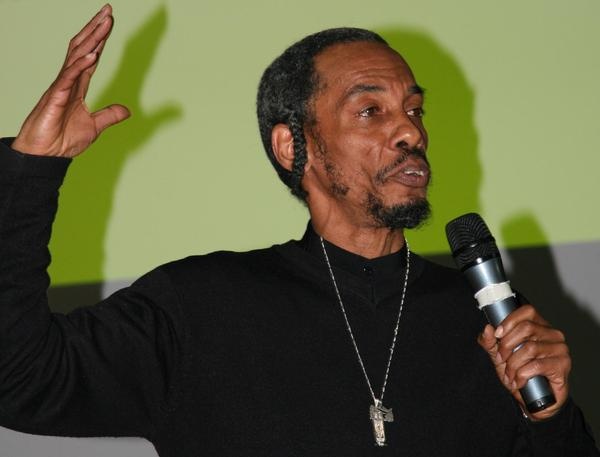
• Insight (poetry/essay), 1975
• Follow de Path (poetry), 1980
• Marijuana (thesis), 1981
• Vegetable & Fruit Juices (health), 1982
• C.U.R.E. 84 (health journal), 1983
• C.U.R.E. 85 (ibid), 1985
• In other words (poetry) 1986
• Black Molasses /Brown Sugar (journal),
1986
• Seasons of Exile (poetry), 1986
• About the Caribbean (socio-geography),
1986
• Sojourn: towards victory (travel
journal and history), 1988
• Profile 96 (journal of culture), 1994
• Manifestations: selected poems 1985-95
(poetry), 1997
• Destiny (journal black history), 1997
• Kush Reclaimed (poetry/ history),
1987/1997/1998
• Nubian Saints of Christianity
(history), 1997/1998
• Nubian Glory: our heritage
(anthropology/history), 1999
• A Job for the Hangman (poetry), 1999
• Never Trouble, Trouble (children
stories), 1999
• Ancient Inscriptions & Sacred Texts of
Ethiopia (anthropology), 2000
• Whether or Not (poetry/history; Raka
Publications), 2001
• As Long As (poetry), 2005
• Muse of Maps, Muurs, Mounds & Mysteries
(essay), 2006
• DIALOGUE (journal for Cultural Literacy),
2006/2007
• Orisha Songs for Celina (poetry), 2006
• In the Moment (poetry), 2006
• Making of TA-MERI-KA: Black Women in Time
(anthropology), 2006
Salaam: A Poem by Roi Kwabena
Salaam
….dedicated to the memory of the late
Leroy Caliste (Poet-Teacher) 1943-30/5/76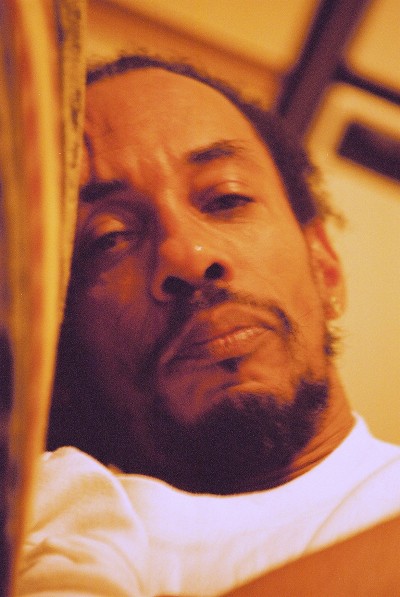
…..am i to sit
an’ stare at these
wretched walls
an’ curse….
with my memories of you….
you….poet….
messenger of this season
refuted by ignorant ones
…..or am i to laugh ironically
to engulf lamentations
within….benighting it from public
…..can any of these moves
truly present themselves
as aids for your resurrection?
…..you have left us….
as Babylon the whore….
laughs….exclaiming conquest
in her lewd form of exultation
an’….mother weeps….
with our daughters viewing her
expressing exasperation
i, no i cannot speak of
a young warrior feeding the land
nor of spilt blood amid green vines
curling about withered sticks….
yet i am to yearn again
for pristine mornings
when we can meet each other
dancing the ancestral dance
through the glade like passages
of ebony
where the chanting voices of
our mothers
sisters
and daughters
make tearful our eyes
as we faintly remember
the weavers of the dust
Salaam Brother….
what more can i wish?
may the memory of you
inspire the awakening flame
of destruction for Babylon….
may the memory of you
enrich and nourish
the sensitivity of others
to follow us
Salaam….my brother
PEACE!!!
Commemorating Roi (Archived Pages)
